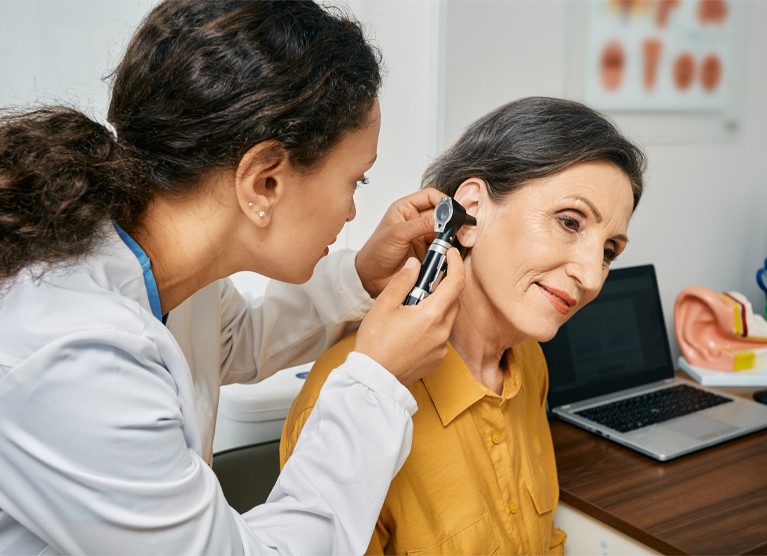Does Hearing Loss Affect Women Differently Than Men?
Does hearing loss affect women and men differently? The short answer: Yes! But how exactly is it different? Well, let’s talk about it.
According to the National Center for Health Statistics, approximately 15% of American adults aged 18 and over experience some level of noise-induced hearing loss — that’s almost 40 million people! Even more interestingly, men are actually twice as likely to experience hearing loss, which many experts attribute to lifestyle differences, like having louder occupations and a higher rate of participation in activities like hunting.
While fewer women will experience hearing loss in their lifetime than men, women are more than twice as likely as men to verbalize their loss of hearing to others and offer communication tips. For example, “I’m hard of hearing; can you enunciate your words for me?” Women are also more likely to seek help when they first notice trouble hearing.

What Women Should Know About Hearing Loss
One of the biggest ways women experience hearing loss differently from men is that women tend to lose their lower-frequency hearing first, while men lose their higher frequencies first. What does that mean? Think of it this way: lower-frequency sounds, like vowels, are quickest to go for women, while higher-frequency sounds, like consonants, are quickest to go for men.
Consider Your Mental Health
Mental health conditions, such as depression, are associated with hearing loss, especially among women, creating an added level of risk for women who not only experience hearing loss but also those who choose not to seek help and treatment. In fact, in a recent study, researchers found the prevalence of moderate to severe depression doubled in those who had some to significant trouble hearing compared to those with excellent hearing.

The Hidden Impact of Pain Relievers
Another interesting fact is that some pain relievers, such as acetaminophen or ibuprofen, have been linked to hearing loss (in women in particular!), mainly due to the decrease in blood flow to the cochlea, which is the part of your inner ear that translates sound vibrations to your brain, allowing us to hear and decipher sounds and words — a pretty important little organ if you ask us.

Hearing Loss and Dementia
Research has also recently found connections between hearing loss and other cognitive disorders, like dementia, but they have also found more positive connections between dementia and hearing aids. A University of Michigan study found that hearing aid wearers who took action within three years of recognizing a hearing loss reduced their risk of being diagnosed with dementia by nearly 20%. If that’s not a strong case for hearing aids, we don’t know what is!

How Should Women Respond to Hearing Loss?
It’s certainly not inevitable that all women (or all people, for that matter) will significantly lose their hearing as they age, but it is still incredibly common among the older population, and the longer you wait for treatment, the more irreversible damage it may cause. So, what can be done? Luckily, there are some easy steps people, especially women, can take to catch potential hearing loss and treat it quickly and effectively.
A great first step is to schedule a hearing screening with a hearing care specialist. We recommend annual hearing tests starting at age 55 because hearing loss and its effects can happen gradually. Once a hearing loss has been identified, your provider will recommend the best course of action, which may include hearing aids or something else.
While only about a third of people in the US who could benefit from hearing aids actually have them, women are statistically more likely to take the leap and wear their hearing aids on a regular basis. Girl power, indeed!
Take the Next Step
We know firsthand from patients that experiencing hearing loss can be scary and uncomfortable, but it is a more common shared experience than you might think. Are you ready to take control of your hearing loss? Beltone is ready and excited to help. Book an appointment with your local Beltone office today.

Take Online Hearing Test
Take our free at-home hearing loss test as a first step on your journey to better hearing.


